May 18, 2025 | 20:46 GMT +7
May 18, 2025 | 20:46 GMT +7
Hotline: 0913.378.918
May 18, 2025 | 20:46 GMT +7
Hotline: 0913.378.918
Organic agriculture not only produces safe food but also ensures sustainable ecosystems. This trend has been steadily increasing in the Mekong Delta in recent years and is forecasted to continue rising in the future.
In particular, on June 23, 2020, the Prime Minister approved the Project on Organic Agriculture Development for the period 2020-2030, affirming Vietnam's determination to develop organic agriculture. This initiative aims to create products certified to meet organic standards locally and globally.
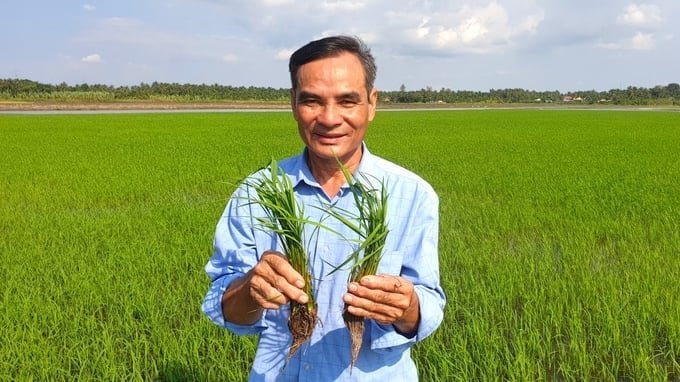
The Tan Dat Agricultural Production and Service Cooperative has established a 30-ha organic rice cultivation area in Vung Liem District, Vinh Long Province. Photo: Kim Anh.
Associate Professor Dr Tran Thi Ba from the College of Agriculture at Can Tho University assesses that from this Project, organic agriculture production in the Mekong Delta has undergone a rapid transformation.
In Long An Province, many diverse certified organic production models have been established, such as a 25-ha organic rice area in Moc Hoa District, safe vegetable areas in Can Duoc District, and oyster mushroom cultivation in Tan Thanh District...
In Vinh Long, the Tan Dat Agricultural Production and Service Cooperative has established a 30-ha organic rice supply area certified according to four top international standards: USDA (USA), EU (Europe), JAS (Japan), and COR (Canada).
Additionally, Ben Tre Province has over 11,400 ha of coconut plantations certified organic; 2 ha of organic mango in Dong Thap; and Thot Not District (Can Tho City) has an organic leafy vegetable cooperative certified according to the PGS standard...
Over 10 years ago, the Mekong Delta also had two international organic certifications for purple onion in Soc Trang and pepper in Phu Quoc (Kien Giang).
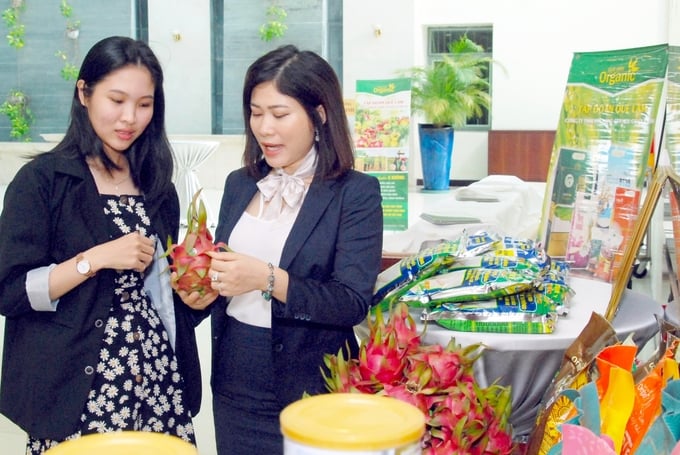
With the support of enterprises, organic agriculture production models receive additional momentum, promoting the expansion of raw material areas and facilitating favourable product outputs. Photo: Kim Anh.
Given the rapid and diverse development of organic agriculture, Associate Professor Dr Tran Thi Ba asserts that in the near future, organic agriculture will be a necessary and urgent requirement to enhance competitiveness, increase value, and achieve sustainable development.
To promote the development of organic agriculture, many provinces in the Mekong Delta are currently focusing on diversifying crops and livestock, establishing models to transform traditional production towards organic certification standards.
The safe rice production fields under the ST24 and ST25 rice production and consumption linkage project, covering 500 ha, implemented by private enterprise Ho Quang Tri in coordination with the People's Committee of Nga Nam town (Soc Trang province), are receiving enthusiastic participation from local farmers. Each plot is cultivated using advanced processes, ensuring timely water drainage, utilizing straw residue for mushroom cultivation, organic fertilizer production, or bundling for sale.
At Tan Long Rice Cooperative (Vi Thuy district, Hau Giang province), rice cultivation follows the Ecocycle process initiated by BSB Nanotech and Net Zero Carbon, applying alternate wetting and drying (AWD) irrigation techniques. The entire growth process of rice is monitored and managed by Spiro Carbon's satellite technology. The model aims for organic farming practices, reducing greenhouse gas emissions to enhance rice value for farmers.
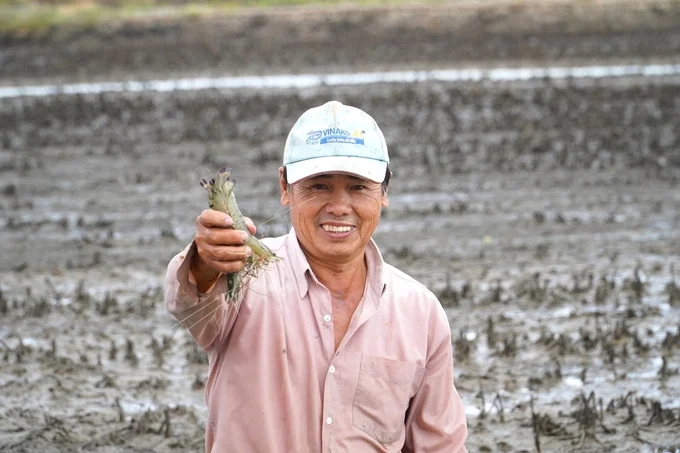
Since 2000, the area under rice-shrimp farming models along the coastal areas of the Mekong Delta has tripled. Photo: Kim Anh.
The organic rice-shrimp farming model in coastal areas of the Mekong Delta is also experiencing significant growth. Statistics up to 2023 show that Kien Giang province has 110,000 ha, while Bac Lieu and Ca Mau provinces each have about 40,000 ha dedicated to organic rice-shrimp farming. Soc Trang, Ben Tre, and Tra Vinh provinces are also developing rice-shrimp models, albeit on a smaller scale.
The biggest advantage of the rice-shrimp farming model is creating a natural environment where farmers can release shrimp after harvesting rice. Particularly, most of the rice and shrimp production is secured under high and stable prices through signed contracts with enterprises.
Practical evidence has no doubt demonstrated that these rice-shrimp farming models are progressing in a positive direction, resulting in significantly higher economic efficiency for producers. Moreover, with steadfast support from enterprises, these models have played a pivotal role in establishing expansive and secure raw material zones. These zones not only meet the stringent demands of domestic markets but also contribute effectively to the requirements of international export markets.
Translated by Hoang Duy

(VAN) Deputy Minister Nguyen Quoc Tri also expressed his hope that Cuba will soon overcome its current challenges, attain food security, and further expand cooperation with Vietnam.

(VAN) The project contributes to enhancing the resilience of communities vulnerable to the impacts of climate change, with a primary focus on local women.
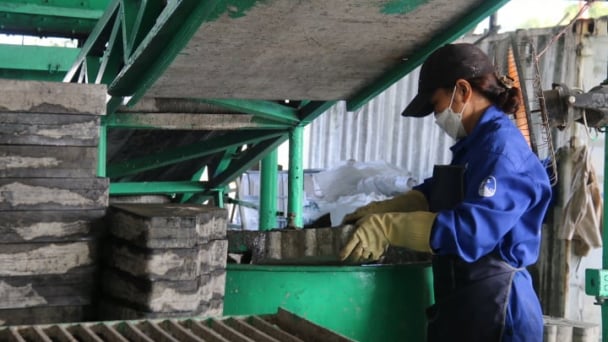
(VAN) Green materials help save energy and resources. However, after more than 10 years, Vietnam has only developed over 200 green buildings with more than 6 million square meters of floor space.
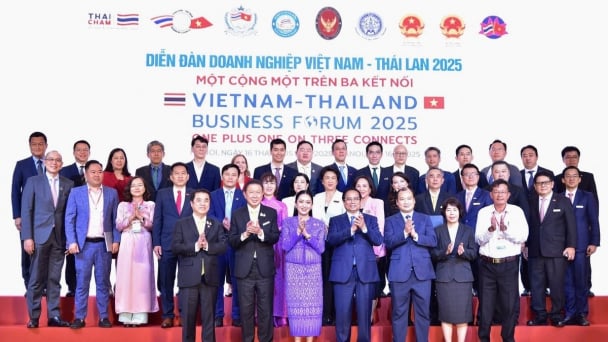
(VAN) Vietnam - Thailand Business Forum 2025: One plus one on three connects, marking a milestone in the comprehensive strategic partnership between the two nations.
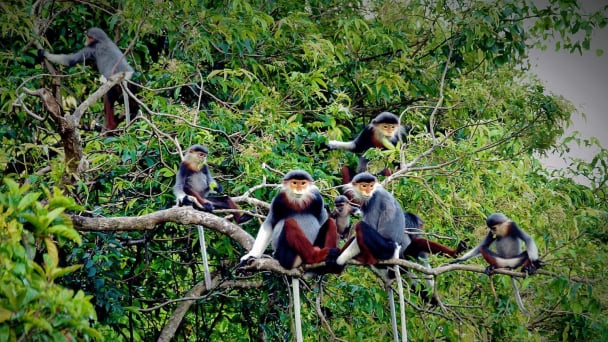
(VAN) The United Nations designated 22 May as the International Day for Biodiversity 2025 with the theme 'Harmony with nature and sustainable development.'
![Multi-channel, multi-directional Vietnamese agricultural markets: [8] A national strategy is needed](https://t.ex-cdn.com/nongnghiepmoitruong.vn/608w/files/phucpm/2025/05/15/1435-thi-truong-nong-san-viet-da-kenh-da-huongbai-8-can-mot-chien-luoc-quoc-gia-084750_728.jpg)
(VAN) The Chairman of Hung Nhon Group shared: ‘Opening up and tapping into new markets is the right and strategic direction for Vietnam's agricultural sector.’
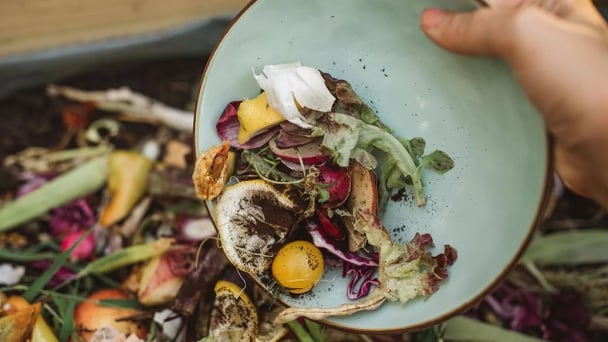
(VAN) Food waste has become a serious issue in modern society, especially in rapidly urbanizing and developing cities like Hanoi.